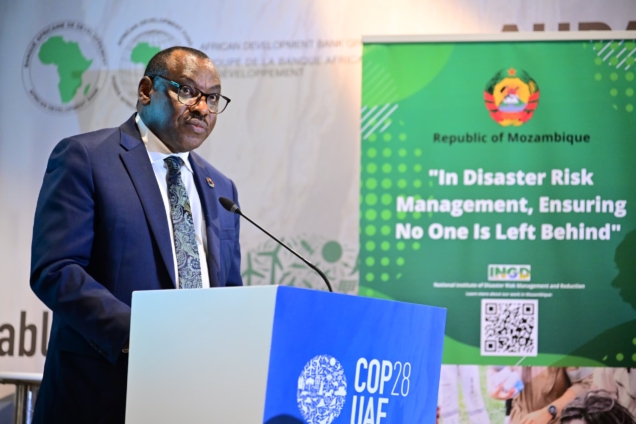The United Nations Economic Commission for Africa says it is optimistic that the 2023 United Nations Climate Change Conference or Conference of the Parties of the UNFCCC (COP28) underway in Dubai will fully "operationalize" the much-anticipated loss and damage fund.
The fund has been a long-standing demand of developing nations on the frontlines of climate change coping with the cost of the devastation caused by ever-increasing extreme weather events such as drought, floods, and rising seas.
Claver Gatete, Executive Secretary of the United Nations Economic Commission for Africa, in his opening address to participants at the COP28 side event on Loss and Damage, intimated that "we are aware that there is so much work to be done to make the fund operational, but we are optimistic that before the end of this COP28, we'll have an agreed-upon the necessary arrangements."
The Executive Secretary, however, noted with pleasure the efforts of COP28 - Sharm El-Sheikh, which established the loss and damage fund, concluding the entire discussion that crossed almost three decades.
"COP28 has started positively with the adoption of the recommendation of the transitional committee on loss and damage. The fund is now funding pledges amounting to six hundred and fifty-six million as of yesterday (December 2, 2023). It is very encouraging and marks the beginning of a very important era in our efforts to address climate change and its impacts," Claver Gatete intimated.
According to a G20 panel's assessment released at the start of 2023, additional funding of about $3 trillion annually by 2030 will be needed for incremental investments in climate action and for reaching other sustainable development targets.
The Group of 20 countries commissioned the independent group, led by economists Lawrence Summers and N.K. Singh, suggesting changes for multilateral development banks, with an emphasis on boosting funding for goals related to sustainable development and climate change, among other things.
Given the much-needed financing arrangements, the Executive Secretary of UNECA remained hopeful that the pledges would be "promptly translated into actual payments" into the fund while making it usable by the member countries.
In the African context, the UNECA boss supported projections that the economic cost of climate change in developing countries will reach between 290 billion and 580 billion annually by the year 2030.
"This, of course, calls for a lot of resources to be invested, especially for the Loss and Damage fund; thus, there is a need for the rapid scaling up of the Loss and Damage fund," Mr. Gatete noted.
Latest Stories
-
Minority Caucus demands urgent action as Ghanaians trapped in Israel and Iran conflict zones
5 minutes -
Robbers shoot farmer dead at Maame Ama village in A/R
6 minutes -
Ibrahim Mahama gifts Azumah Nelson Toyota Fortuner and cash
11 minutes -
NPP NEC holds high-stakes meeting over constitutional reforms, mulls electing flagbearer before executives
18 minutes -
Democracy Hub sues gov’t over deportation of foreign illegal miners without trial
22 minutes -
Ministry of Tourism, Culture and Creative Arts and Ghana Culture Forum host strategic Stakeholder dialogue
25 minutes -
Pope Leo XIV has distant ancestral ties to Justin Bieber, Madonna and other world leaders
33 minutes -
Kwame Sefa Kayi ignited my radio dream – KMJ
37 minutes -
Annoh-Dompreh’s family defends his royal lineage amid Adoagyiri chieftaincy unrest
38 minutes -
Venue change announced for Tamale Constitution Review forum
43 minutes -
Six new Mpox cases confirmed in Ghana, total rises to 91
44 minutes -
Sinapi Aba wins big at 68th Asantehene Golf Tournament in Kumasi
52 minutes -
I was once a ‘shoeshine’ boy – KMJ
60 minutes -
Teachers aiding candidates to cheat in BECE worrying – WAEC
1 hour -
Salomé Azevedo appointed as Managing Director of Nestlé Ghana Ltd
1 hour

